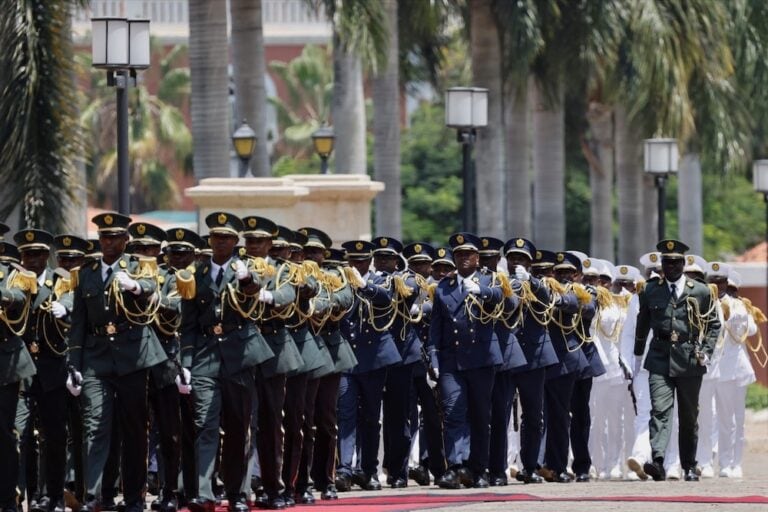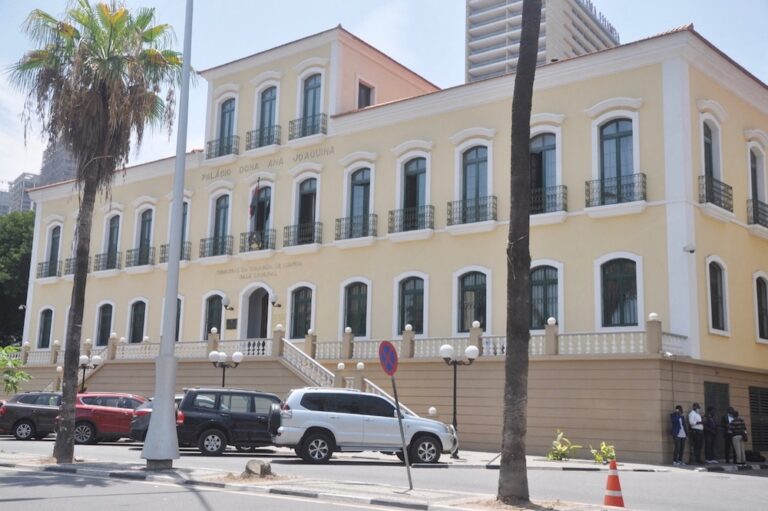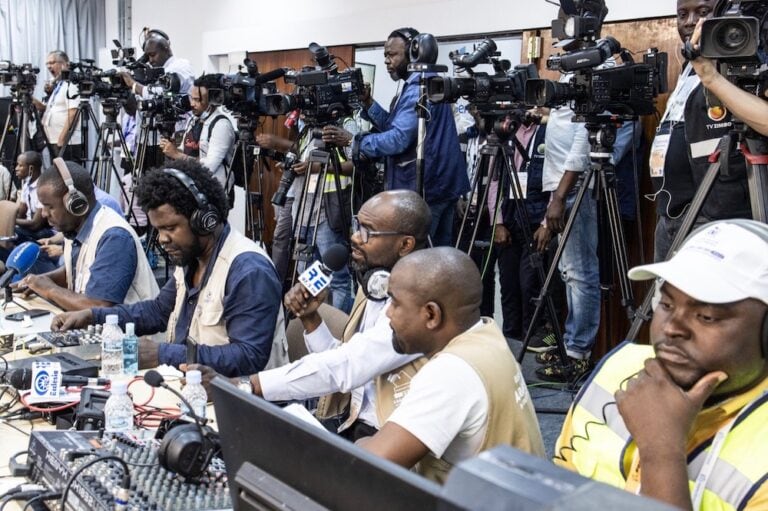(MISA/IFEX) – On 18 August 2001, the Angolan border police barred journalist Gilberto Neto from travelling to London and confiscated his passport. Neto, a reporter for the local weekly “Folha 8” and a Reuters stringer, was on his way to attend a three-week Reuters Foundation course on business news. According to the journalist, the border […]
(MISA/IFEX) – On 18 August 2001, the Angolan border police barred journalist Gilberto Neto from travelling to London and confiscated his passport.
Neto, a reporter for the local weekly “Folha 8” and a Reuters stringer, was on his way to attend a three-week Reuters Foundation course on business news.
According to the journalist, the border police said that the country’s National Police had imposed the ban on Neto.
Immigration officials referred to the prohibition “stamped” in their computer system as dating back to 3 September 1999, when Neto was briefly arrested and beaten by his interrogators for reporting on a police raid against the Catholic-run “Radio Ecclesia”.
BACKGROUND:
Gilberto Neto, age 25, has become one of the main (media) targets of the regime. On 7 July, the journalist was arrested, along with French researcher Phillipe Lebillon, in the Northern Province of Malanje (see IFEX alert of 18 July 2001). They were escorted back to Luanda, where he was handed over to the Department of Selective Crimes of the Police Bureau of Investigation (DNIC). His crime was that he had travelled into the region without the authorisation of the local governor, Flávio Fernandes. For two weeks Neto battled to retrieve his passport, other documents and his work equipment that had been confiscated by the DNIC. Upon receiving his papers and equipment Neto noticed that his personal laptop computer had been damaged.
In January 2000, Neto’s passport was confiscated at the airport following police accusations that he had defamed the police and committed crimes against state security. It took nine months of intense wrangling for the government to return his passport and allow him to travel.
Neto has been the victim of other incidents of government harassment. However, the authorities have never laid any formal charges against him. Rather, he suffers constant “informal” harassment.


